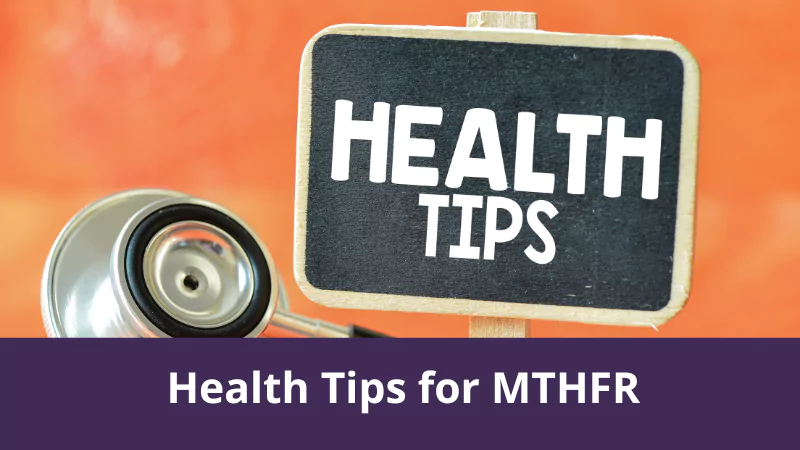Preconception health. What is that!?
Preconception care is what we call the preparation time a woman and man undergoes before they become pregnant. It’s all about knowing the risk factors that could affect a woman’s body or her baby if she becomes pregnant and how they should prepare nutritionally and environmentally to ensure the best for their baby.
In the first few weeks of pregnancy, a mother should be at her healthiest and do whatever it takes to stay away from any harmful activities – such as rigorous work and stress – and dangerous substances because this is the exact period that is most vital to the development of her unborn child.
What is folate?
- Folate is part of the B Complex group of vitamins. These are grouped together because they are most effective when given together as a complex. Since it functions better as a complex, it’s always a good idea to balance folate supplementation at least with vitamin B6 and vitamin B12.
- Folate functions as a coenzyme or co-substrate in single-carbon transfers in the synthesis of nucleic acids (DNA and RNA) and metabolism of amino acids.1,2,3 One of the most important folate-dependent reactions is the conversion of homocysteine to methionine in the synthesis of S-adenosyl-methionine, an important methyl donor.1,2,3
This means folate is necessary for our bodies to make DNA and other genetic material, as well as for cell division.
- A sufficient amount of folate protects you and your baby from the risks associated with deficiency. Folate deficiency may cause neural tube birth defects such as spina bifida. It is also a factor for the increased probability of having a baby with low birth weight.
- The main form of folate in plasma is 5- Methyltetrahydrofolate (5-MTHF folate). 5-MTHF folate is the biologically active form of vitamin B9 which is the form the human body can actually use in circulation. Unfortunately, many who have a genetic MTHFR mutation are unable to utilize these nutrients properly.
How much folate is too much?
Average daily recommended amounts recommended by the health authorities for all women who plan to become pregnant is 400 mcg of folic acid every day from enriched foods, supplements, or from both in combination. As we know, folic acid is not absorbed by all people so other forms may be best. A recent new study4 shows too much folate (what form was not disclosed) can cause autism in children (ASD – autism spectrum disorders).
The study from Johns Hopkins University indicates that a small group of mothers had excessively high levels of folate in their blood (was this because it was folic acid and not methylfolate? ) and was shown to have an increased risk of having a child later diagnosed with ASD.
Data from 1,391 mother-child pairs were analysed. The mothers were from the Boston Birth Cohort and were recruited at the time of their child’s birth between 1998 and 2013 and were subsequently followed for several years. Within the first one to three days of delivery, the mother’s blood folate levels were checked.
It was found that one in ten of the women had what is considered an excess amount of folate and six percent had an excess amount of vitamin B12. It is not known why some women had elevated levels of folate and B12 in their blood. Regardless, it was concluded if a new mother was shown to have a very high level of folate right after giving birth (more than four times what is considered adequate), it more than doubles the risk of her child developing ASD.
Because the research is relatively new, follow up experiments are necessary in order to be able to determine just how much folic acid a woman should consume before, during, and after pregnancy. The 400 mcg dose is about the closest we have to an optimum dose which will ensure the health of the baby.
Although the full details of this study have not yet been published, it’s interesting to contemplate that perhaps this adverse reaction is because the participants were from a lower income group and were most likely not using methylfolate but were getting excess folic acid from supplements and food sources (and this is not metabolised as well as active folate). This folic acid build up we know from initial papers can also affect our immune system and decrease the methylation of the sperm epigenome. Definitely food for thought!
Take away
What is important is although we have long known folate deficiency is harmful for a baby’s development, this recent discovery proves exaggerated amounts of the wrong form of folate is not necessary a safe route to take. But more importantly we need to be concerned about the form of folate that we should be taking. There is no evidence to suggest that elevated 5-MTHF is detrimental and this is not the case with folic acid.
References
- Bailey LB, Gregory JFr (2006). Folate. Present Knowledge in Nutrition external link disclaimer. B. Bowman and R. Russell. Washington, DC, International Life Sciences Institute. I: 278-301.
- Institute of Medicine. Food and Nutrition Board (1998). Dietary Reference Intakes: Thiamin, Riboflavin, Niacin, Vitamin B6, Folate, Vitamin B12, Pantothenic Acid, Biotin, and Cholineexternal link disclaimer. Washington, DC, National Academy Press.
- Carmel R (2005). Folic Acid. Modern Nutrition in Health and Disease. M. Shils, M. Shike, A. Ross, B. Caballero and R. Cousins. Baltimore, MD, Lippincott Williams & Wilkins: 470-481.
- Maternal plasma folate, vitamin B12 levels and multivitamin supplementation during pregnancy and risk of Autism Spectrum Disorder in the Boston Birth Cohort. Ramkripa Raghavan, M. Daniele Fallin and Xiaobin Wang. The FASEB Journal April 2016, vol. 30 no. 1 Supplement 151.6









